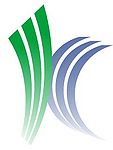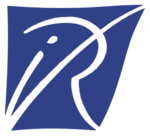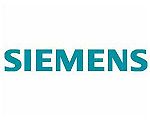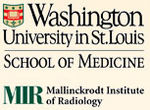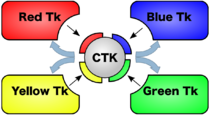Events:CTK-Workshop-June-2009
From NAMIC Wiki
Home < Events:CTK-Workshop-June-2009
The Common Toolkit Workshop at the DKFZ in Heidelberg, Germany hosted by the MBI.
| The purpose of this workshop was to convene a number of groups who are working on FOSS Medical Image Computing platform development using BSD style licenses and to explore meaningful ways of coordination and integration. Day one of the meeting consisted of briefing each other about the softwares, day two was for brainstorming and concept development. |
Links
- http://www.CommonTk.org (under development - reserved as future home page)
- http://my-trac.assembla.com/protoctk Prototype trac installation for CTK hosted by assembla.com.
Day 1
June 29 2009 Presentation of platform / toolkit efforts. Names of the actual presenters are listed.
ITK, VTK, IGSTK, InfoVis, FARSIGHT, Maverick (Stephen Aylward)
Slicer3 (Ron Kikinis, Steve Pieper)
MedINRIA (Olivier Clatz, Julien Wintz)
OpenXIP Extensible Imaging Platform (Gianluca Paladini)
MAF3 (Paolo Quadrani)
MITK (Ivo Wolf, Marco Nolden)
Working Group 23 (Lawrence Tarbox)
What can we learn from PACS development (David Clunie)
Day 2
What are the goals of a common toolkit?
First ideas from day 1
- Very modular architecture
- Common core:
- e.g. IO of scenes
- common object layer (?)
- should be GUI independent
- Not be trying to address everything …
- … within the CTK core
- leave different tasks to different toolkits/applications on top of CTK
- OR: … optional parts of CTK (on top of the CTK core)
- Extensible, scriptable end-user application(s) (also optional; host)
- different applications for clinicians, for biomedical researchers
- Offer commercial support
Discussion result day 2
Legal and regulatory aspects
- License: BSD-style
- Common, transatlantic license regarding liability
- No inclusion of patents unless we are granted a license to use it
- Appropriate process and tools to ease quality management
- Coding convention
- Unit testing
- Design documentation
- Support traceability
General
- Common repository: not just a list of toolkits, but includes some CTK specific code (CTK core)
- Basic functionality that we all need
Technical aspects
- Language of core library: C++
- But language bindings to other languages: Java, Python, .NET
- Automated binding generation
- Reuse methods available in Qt by default
- IO layer
- base Qt-independent
- on top: Qt-dialogs etc.
- Support many file formats
- Allow storage of scene graphs
- Should be DICOM-centric
- DICOM support has to be designed that it can evolve -> modular
- taken from existing toolkits (e.g. DCMTK), but
- consolidate at common place
- add missing features
- adaptors that allow to leave the actual IO to the host
- Example: “save scene as DICOM”
- GUI-part must be separable
- C++/Qt reference implementation of WG23 host DICOM supplement on Application Hosting
- Include a database (but allow other databases to be used)
- Single click installation for users
- Single click installation for developers
Scope
- IO layer
- GUI- wizard Workflow
- scripting language support
- plugin loading mechanism
- IGT support?
- Robotics support?
- Control of devices?
Next steps
- Form a consortium:
- Participants of this meeting, OFFIS, Kevin Cleary
- Mailing list
- Grants
- Inform each other of grant applications
- Mention CTK in the grant applications
- Webpage on www.CommonTK.org incl. logo
Follow up meeting
1 full day meeting in Oxford, UK after MICCAI, Friday, September 25 2009
Funding opportunities
Europe
European Strategy Forum on Research Infrastructures (ESFRI)


